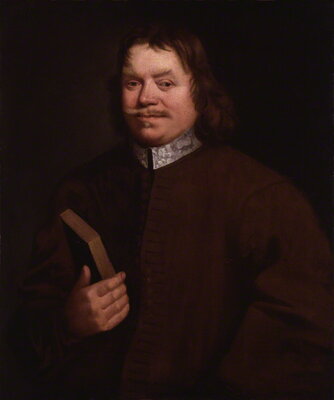1. When Jesus Christ fulfilled the righteousness of the law, it is said it was fulfilled in us, because indeed fulfilled in our nature: ‘For what the law could not do, in that it was weak through the flesh, God sending his own Son in the likeness of sinful flesh, and for sin, condemned sin in the flesh, that the righteousness of the law might be fulfilled in us,’ &c. (Rom 8:3, 4). But because none should appropriate this unto themselves that have not had passed upon them a work of conversion, therefore he adds, ‘Who walk not after the flesh, but after the Spirit’ (v. 4). For there being a union between head and members, though things may be done by the head, and that for the members, the things are counted to the members, as if not done only by the head. ‘The righteousness of the law is fulfilled in us’; and that truly, because fulfilled in that common nature which the Son of God took of the Virgin. Therefore, in this sense, we are said to do what was only done by him; even as the client is done by his lawyer when his lawyer personates him; the client is said to do when it is the lawyer that does; and to overcome by doing, when it is the lawyer that overcomes; the reason is, that the lawyer does it in the client’s name. How much more then may it be said we do when only Christ does; since he does what he does, not in our name only, but in our nature too; ‘for the law of the spirit of life in Christ.’ not in me, ‘hath made me free from the law of sin and death’ (Rom 8:2); he did in his common flesh what could not be done in my particular person, that so I might have the righteousness of the law fulfilled in me, [that is, in] my flesh assumed by Christ; though impossible to be done [by me], because of the weakness of my person. The reason for all this is because we are said to be in him in his doing, by our flesh, and also by the election of God. So, then, as all men sinned when Adam fell, so all the elect did righteousness when Christ wrought and fulfilled the law; ‘for as in Adam all die, even so in Christ shall all be made alive’ (1 Cor 15:22).
2. As we are said to do by Christ, so we are said to suffer by him, to suffer with him. ‘I am crucified with Christ,’ said Paul. And again, ‘Forasmuch then as Christ hath suffered for us in the flesh, arm yourselves likewise with the same mind; for he that hath suffered in the flesh hath ceased from sin’ (1 Peter 4:1). Mark how the apostle seems to change the person. First, he says, It is Christ that suffered; and that is true; but then he insinuates that it is us that suffered, for the exhortation is to believers, to ‘walk in the newness of life’ (Rom 6:4). And the argument is, because they have suffered in the flesh, ‘For he that hath suffered in the flesh hath ceased from sin; that he no longer should live the rest of his time in the flesh to the lusts of men, but to the will of God’ (1 Peter 4:1,2). We then suffered, when Christ suffered; we then suffered in his flesh, and also our ‘old man was crucified with him’ (Rom 6:6); that is, in his crucifixion; for when he hanged on the cross, all the elect hanged there in their common flesh, which he assumed, and because he suffered there as a public man.
